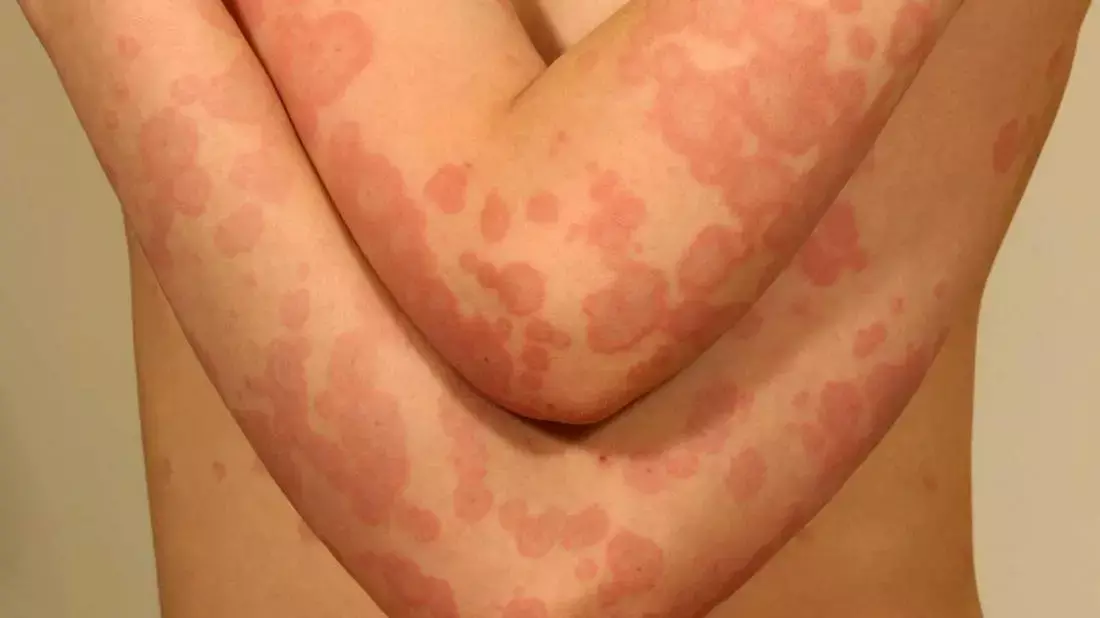- Home
- Medical news & Guidelines
- Anesthesiology
- Cardiology and CTVS
- Critical Care
- Dentistry
- Dermatology
- Diabetes and Endocrinology
- ENT
- Gastroenterology
- Medicine
- Nephrology
- Neurology
- Obstretics-Gynaecology
- Oncology
- Ophthalmology
- Orthopaedics
- Pediatrics-Neonatology
- Psychiatry
- Pulmonology
- Radiology
- Surgery
- Urology
- Laboratory Medicine
- Diet
- Nursing
- Paramedical
- Physiotherapy
- Health news
- Fact Check
- Bone Health Fact Check
- Brain Health Fact Check
- Cancer Related Fact Check
- Child Care Fact Check
- Dental and oral health fact check
- Diabetes and metabolic health fact check
- Diet and Nutrition Fact Check
- Eye and ENT Care Fact Check
- Fitness fact check
- Gut health fact check
- Heart health fact check
- Kidney health fact check
- Medical education fact check
- Men's health fact check
- Respiratory fact check
- Skin and hair care fact check
- Vaccine and Immunization fact check
- Women's health fact check
- AYUSH
- State News
- Andaman and Nicobar Islands
- Andhra Pradesh
- Arunachal Pradesh
- Assam
- Bihar
- Chandigarh
- Chattisgarh
- Dadra and Nagar Haveli
- Daman and Diu
- Delhi
- Goa
- Gujarat
- Haryana
- Himachal Pradesh
- Jammu & Kashmir
- Jharkhand
- Karnataka
- Kerala
- Ladakh
- Lakshadweep
- Madhya Pradesh
- Maharashtra
- Manipur
- Meghalaya
- Mizoram
- Nagaland
- Odisha
- Puducherry
- Punjab
- Rajasthan
- Sikkim
- Tamil Nadu
- Telangana
- Tripura
- Uttar Pradesh
- Uttrakhand
- West Bengal
- Medical Education
- Industry
Thalidomide may reduce flare frequency in patients with chronic Erythema Multiforme: JAMA

Thalidomide therapy was associated with a high rate of remission and a reduction in flare frequency in patients with Chronic Erythema Multiforme, according to a recent study published in the JAMA Dermatology.
Erythema multiforme (EM) may become long term, with a recurrent or persistent course. First-line treatment for chronic EM is valaciclovir. There is no consensus for selection of second-line treatment of chronic EM. The aim of this study was to assess the effectiveness of treatment with thalidomide for patients with chronic EM.
In this retrospective national multicenter cohort study, among 68 French hospital dermatology departments contacted by e-mail, 10 reported having eligible cases. All adults aged 18 years or older under dermatology care for chronic EM (including recurrent and persistent forms) who had received thalidomide between 2010 and 2018 were included. Analyses were conducted from June 24, 2019, to December 31, 2019. The primary outcome was the proportion of patients who did not experience an EM flare within 6 months of initiating thalidomide treatment for recurrent EM or with complete clearance at 6 months for persistent EM (complete remission).
The Results of the study are as follows:
Overall, 35 patients with chronic EM (median [range] age, 33 [15-65] years; 20 [57%] female) experienced failure of at least 1 previous treatment prior to initiating treatment with thalidomide. After 6 months of continuous thalidomide treatment, 23 (66%) were in complete remission, 5 (14%) had stopped the treatment, and 7 (20%) experienced at least 1 flare. The median (IQR) initial dose followed by remission was 50 (50-100) mg/d. Main adverse effects were asthenia (16 [46%]) and neuropathy (14 [40%]). Twenty-five (71%) of patients stopped thalidomide treatment after a median (IQR) of 12 (8-20) months owing to lack of effect (7/25 [28%]), neuropathy or another adverse effect (14/25 [56%]), or long-term complete remission (4/25 [16%]). Low-dose thalidomide, less than 50 mg every other day was sufficient in 9 of 23 (39%) of responders and was associated with less neuropathy and longer treatment duration.
Thus, the researchers concluded that in this cohort study, second-line therapy with thalidomide was associated with complete remission in two-thirds of the 35 patients with chronic EM. However, adverse events were a common cause of thalidomide withdrawal. In the long term, dose reduction when possible may allow for continuation by improving tolerance.
Reference:
Evaluation of Thalidomide Treatment of Patients With Chronic Erythema Multiforme: A Multicenter Retrospective Cohort Study by Camille Roux et al. published in the JAMA Dermatology.
https://jamanetwork.com/
Dr. Shravani Dali has completed her BDS from Pravara institute of medical sciences, loni. Following which she extensively worked in the healthcare sector for 2+ years. She has been actively involved in writing blogs in field of health and wellness. Currently she is pursuing her Masters of public health-health administration from Tata institute of social sciences. She can be contacted at editorial@medicaldialogues.in.
Dr Kamal Kant Kohli-MBBS, DTCD- a chest specialist with more than 30 years of practice and a flair for writing clinical articles, Dr Kamal Kant Kohli joined Medical Dialogues as a Chief Editor of Medical News. Besides writing articles, as an editor, he proofreads and verifies all the medical content published on Medical Dialogues including those coming from journals, studies,medical conferences,guidelines etc. Email: drkohli@medicaldialogues.in. Contact no. 011-43720751


